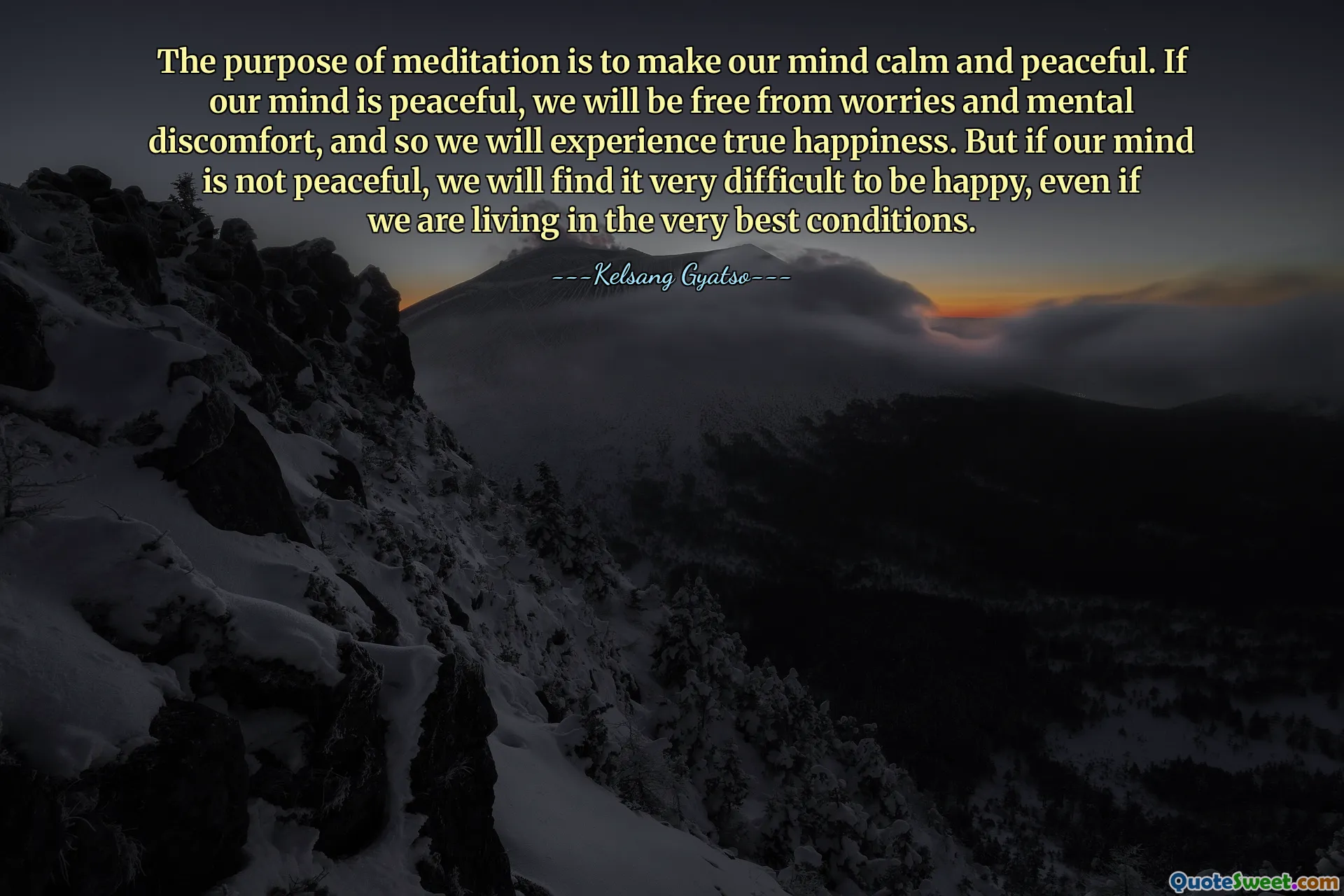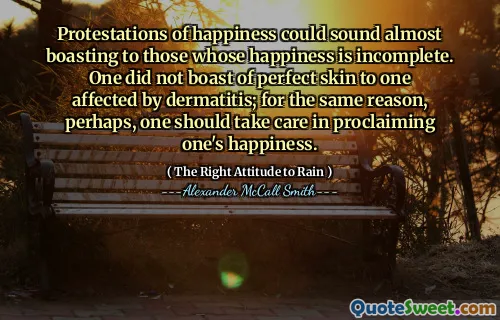
The purpose of meditation is to make our mind calm and peaceful. If our mind is peaceful, we will be free from worries and mental discomfort, and so we will experience true happiness. But if our mind is not peaceful, we will find it very difficult to be happy, even if we are living in the very best conditions.
The quote highlights the fundamental role that mental peace plays in achieving true happiness. It suggests that outer circumstances, while important, are secondary to the tranquility of the mind. When meditation is practiced mindfully, it cultivates a state of calmness that acts as a refuge from the inevitable stresses and worries of everyday life. This inner serenity becomes the foundation for lasting contentment, as opposed to transient pleasures derived from external sources. The idea that a restless or turbulent mind hampers true happiness resonates with many philosophical and psychological perspectives, emphasizing that peace within influences our perception and emotional state. It also underscores the importance of internal work—such as meditation—not just as a spiritual practice but as a means for mental health and well-being. The statement prompts us to consider the value of cultivating mental calmness regardless of external conditions. In our modern world, where external success and material possessions often dominate our pursuits, this reminder serves as a profound insight into the nature of happiness. It encourages us to develop a skillset of mindfulness and inner tranquility, recognizing that genuine happiness is rooted in peace of mind, not external circumstances. Practicing meditation consistently can help untangle the chaos and noise within our minds, fostering resilience and serenity amidst the chaos of daily life. Ultimately, the quote advocates that inner peace is the true key to happiness—something that each person can cultivate through disciplined practice and awareness.











